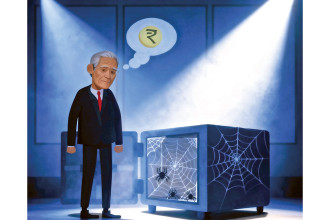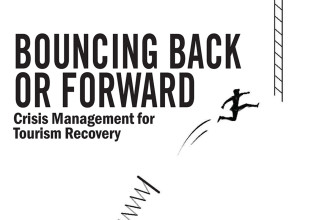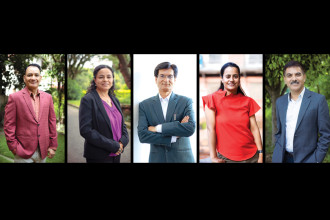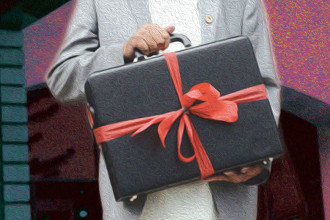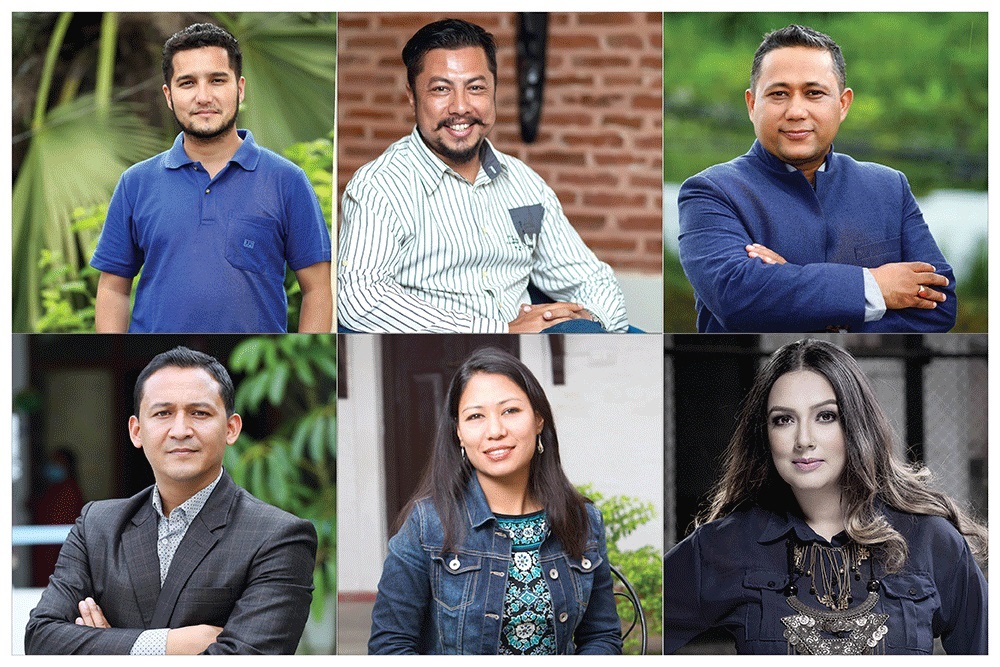
What are their agendas? Why politics? Why now? The issues are the same, the agenda is the same, is this just political rhetoric or can the new breed of politicians deliver?
PUKAR BAM Independent Candidate for House of Representatives Constituency 1, Kathmandu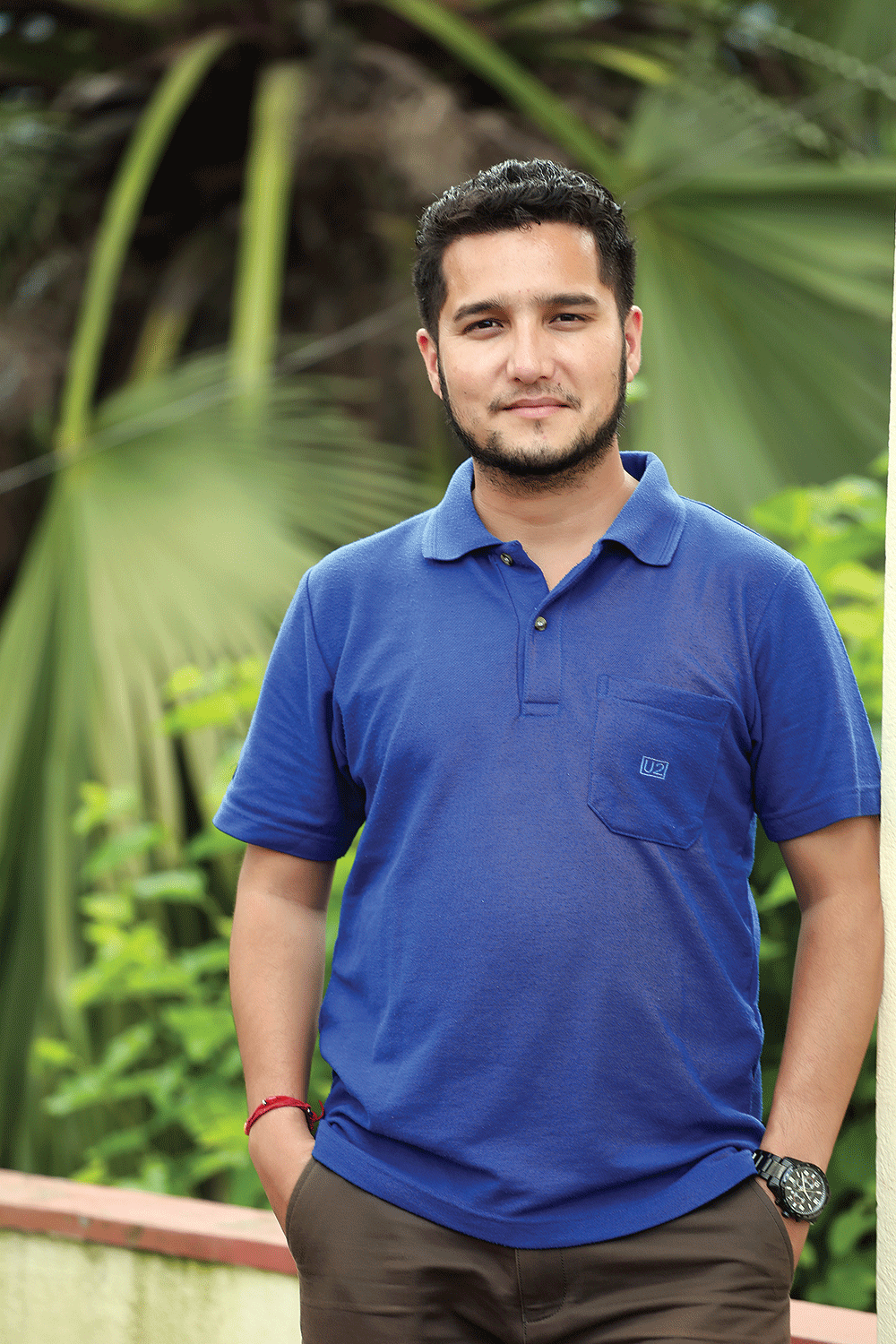
BIRAJ BHAKTA SHRESTHA Independent Candidate for House of Representatives Constituency 8, Kathmandu
SHISHIR KHANAL Independent Candidate for House of Representatives Constituency 6, Kathmandu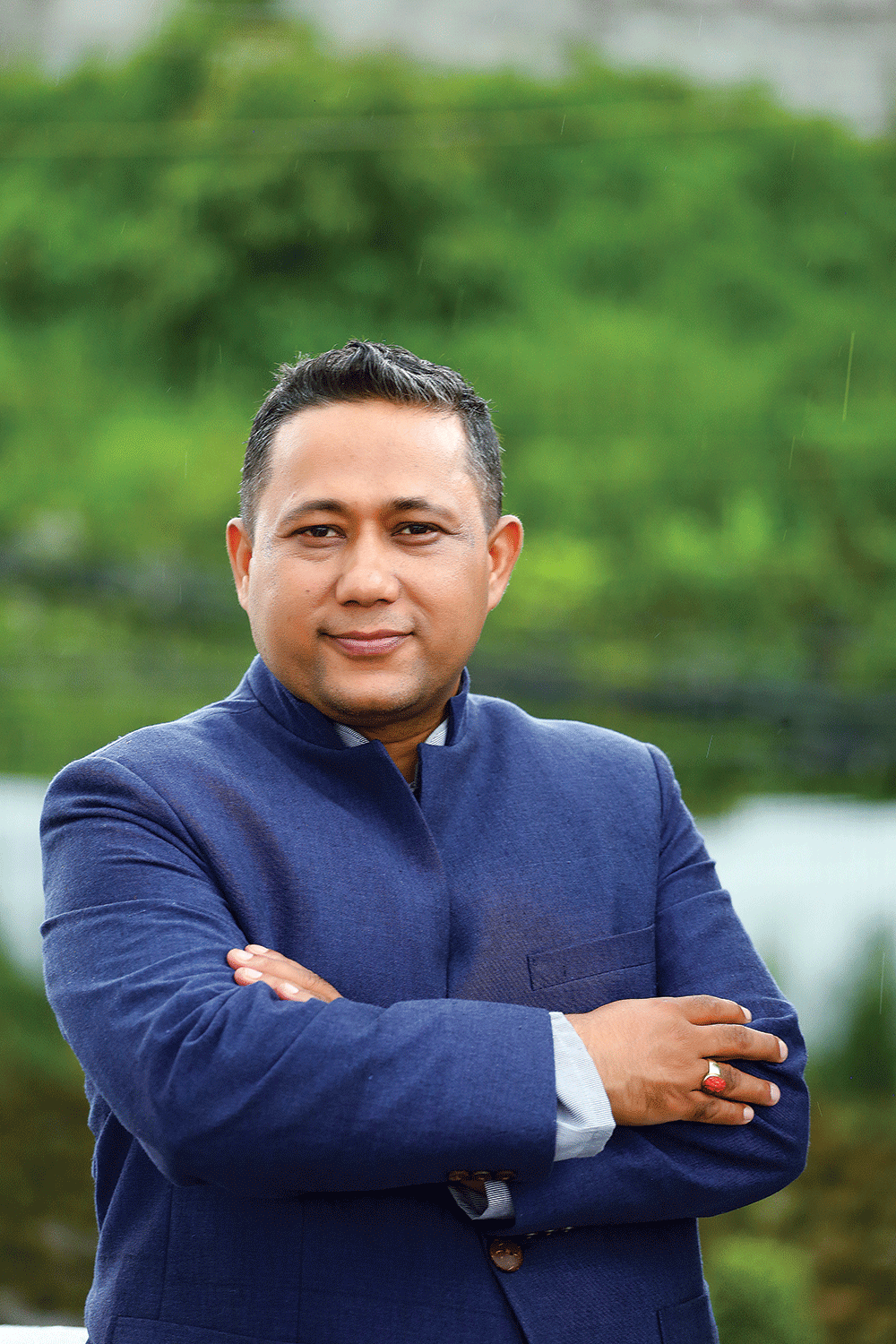
PRANAYA RANA Independent Candidate for House of Representatives Constituency 5, Kathmandu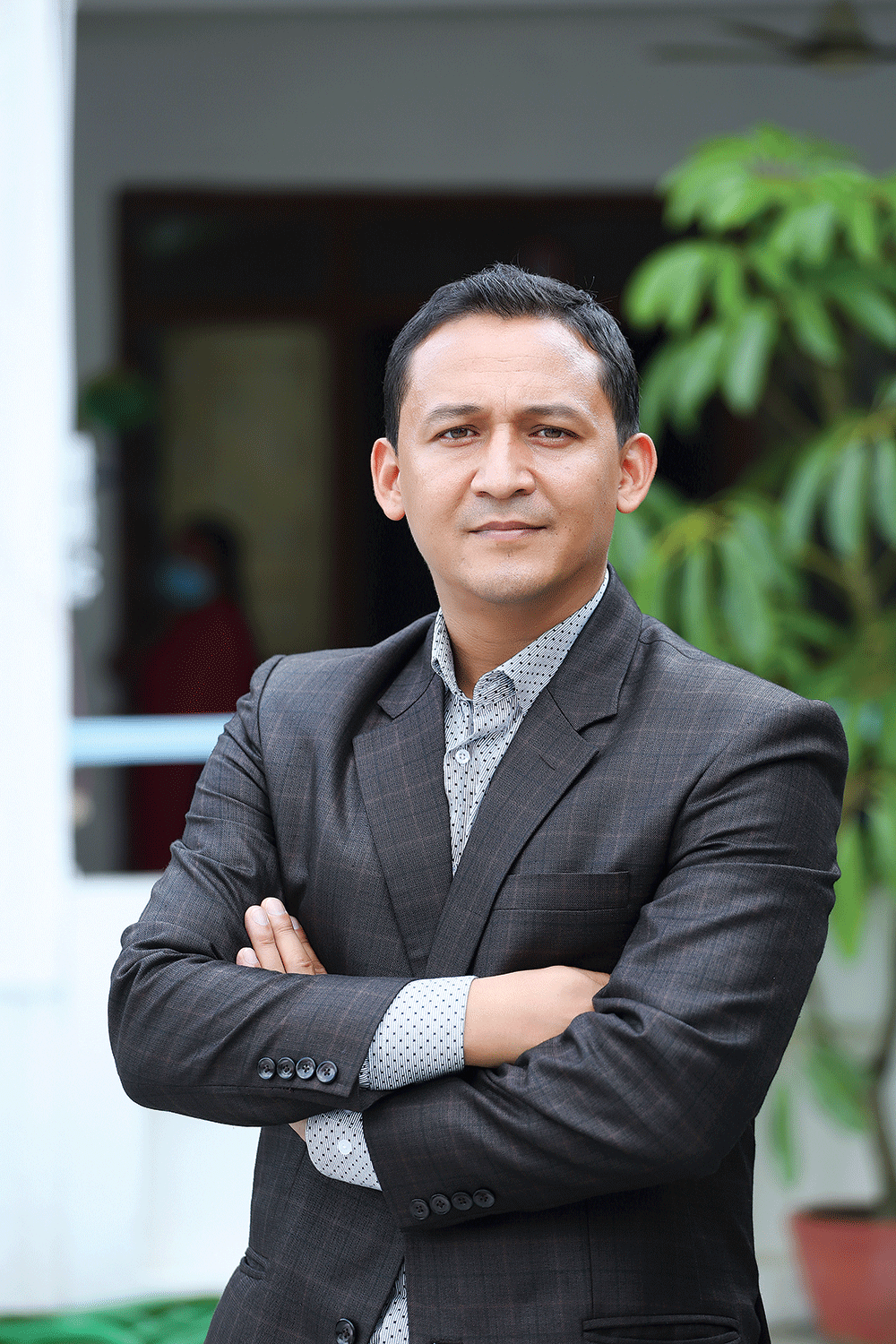
SUMANA SHRESTHA Helping set up systems Rastriya Swatantra Party
KHUSBU OLI Rastriya Prajatantra Party candidate for house of representatives Constituency 4, Jhapa
PUKAR BAM Independent Candidate for House of Representatives Constituency 1, Kathmandu

Why politics and why now?
In school, I was always academically sound. However, when I started high school and undergrad level here in Nepal, I noticed a flaw in the system. The front benchers, the ace students always finished their studies just to find a job whether in Nepal or abroad, but the back benchers, the ones who didn’t study were the leader kind, the ones who were into politics and leadership. This did not sit well with me. The leaders of our nation were people who didn’t do well in their studies, they had good reach but weren’t the brightest. I believe that if you want to see development, the leaders must be capable and also know the ins and outs of the country. I stepped into politics because I wasn’t satisfied with the way the leaders handled the situations of our country and I want experienced, young manpower to step up. I want to represent this demographic. I have been in the field of politics for over ten years now. The hard work of these years has been fruitful for me in a way that people are finally recognising me.What makes you a better leader than what we already have?
The traditional approach to leadership has never been demonstrated to be effective. I wouldn’t go so far as to say that I am better than the leaders of the past, but when we consider the actions of both parties, I believe that the younger generation is the one that will bring about change in the way the country is developed. Change is something that people of my generation have been fighting for over a decade now, and it can now be seen. The fact that we are different can be deduced from the fact that we have a distinct academic and professional background.What is that one important issue for you?
In my opinion, our country’s healthcare and education systems are in direct need of significant reforms. It is essential that education and skills which should in turn be related to jobs and production be closely connected to one another. As a result, I am working with my team to develop a model comparable to that for the expansion of the education industry. If we are successful in bringing about this change in the education system, I am confident we will be able to solve a number of problems that exist in the sector."The returns on remittance must be focused on reinvestment rather than consumption. Remittance must be focused on building the economy of the country."
What are the three things you would immediately address to improve the economy of our country?
First of all, we need to check and do away with corruption. If we work on digitising the government system, the rate of corruption will plummet. Secondly, 20-25% of our gross domestic product is remittance. The returns on remittance must be focused on reinvestment rather than consumption. Remittance must be focused on building the economy of the country. The policy I am working on focuses on this very thing; investing in hydropower, agriculture and also helping startups. Lastly, agriculture has been neglected by the budget of the country. Technical advancement in agriculture can prove to be helpful to the economy of Nepal. We need to adjust these three things if we want to see change.How should Nepal engage in economic diplomacy to find solutions to the country’s major economic imbalances?
The trade and economy of Nepal are directly linked with our neighbouring countries India and China and other influences are Japan and USA. We know that China and India are the leading economies of the world and our close proximity with them can be beneficial for us. We have to have a check and balance approach with them in order to create an economic balance in the country by showcasing our unique productions which can be beneficial for them.Do you have a real time frame to meet the goals you have set while joining politics?
Me along with many other young leaders have decided to start from the problems we have identified. There are many agendas on hand such as development in the education and health sectors along with voting rights. The plan is to implement the solutions after the elections have concluded.If you fail to win the election what will you attribute it to?
This is my fourth time running in this election. If I am to lose this year, I believe that it is because of lack of research among the voters. The reign of traditional politics has proven to be unfavourable for us. The traditional mindset of the youths and voters will contribute to my failure and also goals and timeframe if I win. One of our major aims is to establish the concept of an open Singha Durbar where discussions can be held in a free manner.BIRAJ BHAKTA SHRESTHA Independent Candidate for House of Representatives Constituency 8, Kathmandu

Why politics?
An important subject such as politics should be understood by all but politics has always been labelled as a dirty game in our society which has created a syndicate that has caught many Nepali youths in a loop of knowing and learning about it late. In my opinion, politics should be a matter of interest for everyone even if one doesn’t want to be involved directly. To the question why now? What better place than here and what better time than now? So, my take on it is, why not politics and why not now.What makes you a better leader than what we already have?
Leadership is a process and there is nothing like the best leader because time is dynamic. The decision one makes today and tomorrow should be taken in a collective and participatory manner which will help us to meet the challenges that come our way. There is no title or certificate that states a person to be a good leader; tackling the problems that are thrown your way on a daily basis and learning from it makes a person a better leader every other day. The current generation of youths has understood the concept of time relevance and can complement the current situation. Our current leaders have definitely created a platform from their contributions but the mentality of them being right all the time is something that I find fundamentally wrong. For instance, if the coming generation does not find the laws and regulations relevant in their time, they have the right to change it according to their need and situation. Hence, the evolving youths as leaders have embraced and acknowledged this and it makes us time-relevant leaders which is essential.What is the one most important issue for you?
The one most important issue we are facing is environment. Climate change is real and we ourselves can see it. Last year, Kathmandu was labelled as one of the most polluted cities in the world. We have to understand that the air in our environment is extremely polluted and according to research, it shows that when people tend to inhale polluted air, they are often angry and have possible mental problems. Similarly, we all faced viral fever a few months back. People who earn very average amounts of money had to spend all their savings on medicines and check-ups and now we have dengue. These diseases are the outcome of poor environment activities. Henceforth, policy making and environment should be taken hand in hand to solve the problem from the grassroots level."We have to head into a circular economy model. Nepal is an import-based country and importing most of the products creates an economic strain on the government and people. The products made here in Nepal should be given priority rather than foreign goods."
Three things that should immediately be improved in our economy?
Financial independence is the first agenda that I would like to focus on. Nepal has been importing coriander worth Rs 130 million from one country, wheat from another and the list goes on. The crops that are grown here are being destroyed as there is lack of proper management and also because people have started to go abroad in order to earn money. Secondly, the entrepreneurship scene should be promoted more. The policies that are supporting this notion should actively help the young entrepreneurs to take the leap and start businesses of their own. This itself will create a business boom in the nation. Lastly, we have to head into a circular economy model. Nepal is an import-based country and importing most of the products creates an economic strain on the government and people. The products made here in Nepal should be given priority rather than foreign goods. For example, we buy smartphones every now and often. Whenever there is a new model, we are ready to spend money on it, consumerism is highly established but during our mother’s generation, they used to preserve the smallest of things such as bottles of Horlicks for future use. Sustainability and circular economy are crucial for Nepal.How should Nepal engage in economic diplomacy to find solutions to the country’s major economic imbalances?
First of all, we need to figure out the competitive market in our society and the unique selling point of our products. We also have to understand that both tangible and intangible assets have immense value. We all know about the game Candy Crush; millions of people play that game around the globe. The monetary value of the person who designed the game is a millionaire by now. This alone shows that intangible assets bring monetary value. Also, the need to be present at the relevant time is equally crucial. Nepal has abundant raw materials that we are exporting at a cheap price but if we export processed materials, we might have a greater advantage in increasing the economy of the country. If the government is able to establish refined manufacturing companies, the country will be able to create a space for people to work within the country as well. Keeping the global demand and supply in mind, we need to work on the stake of the materials and work towards the action to make this possible. This itself will promote economic diplomacy and stabilise economic imbalances.Do you have a real time frame to meet the goals you have set while joining politics?
Yes, but a political journey is such an interesting journey where objectives, the things you are supposed to do, and the connections create a kind of confusion among people. If we look at the nature of our society, we have our interests and what I think is if we have a political force which can guide the people in the right direction then we definitely can achieve the goals. But it’s all about the time, the present scenario, and the trends that are followed in the community.If you fail to win the election what will you attribute it to?
This election happens every five years. So, one person winning or losing really doesn’t matter but the perspective of the society and the people will be clear. There is a saying by Nelson Mandela, ‘You get the leader, you deserve’. So, even if I lose my contribution, my dedication will never stop. For me, even if I die, my work and ethics shall always be present in the country by the works I’ve done over the years.SHISHIR KHANAL Independent Candidate for House of Representatives Constituency 6, Kathmandu

Why politics and why now?
I had been working in the rural parts of Nepal in the education sector. During that phase, I noticed that many people, regardless of their educational background, aspired to go abroad. Today, in Nepal, 1,700 youths leave the country every day in search of a job. The main objective of youths in Nepal in this day and age is to go abroad and settle down there. Over 100,000 Nepali youths travel abroad for further studies. While fighting for elections from Constituency 6, I noticed that renowned colleges in their prime such as Tri Chandra and ASCOL were in terrible condition. To my surprise, Tri Chandra hasn’t been renovated since the earthquake. On one hand, thousands of unprivileged youths are trying their best to study in Nepal even with terrible facilities, on the other, privileged youths are leaving their mother land for better education. Why can’t we just have a better education system in our own country? The flaw in the education policy in Nepal has failed the youths of Nepal. I believe that if we, the youths, wait any longer, it will be too late for our country. Urgent action must be taken in the coming years, if we want to see change. I feel as though if we don’t step up now, it will be late and hence, the time is now.What makes you a better leader than what we already have?
When we generalise the political leader of today, they are usually student leaders or from 1990s; for 30 years the politicians now have been the ruling class. What we know is, as a citizen of Nepal, in terms of getting the kinds of services we deserve, whether that be better education, access to quality health care, job opportunities and what not, we have been let down a lot. Even in the case of Covid 19 we had to protest against the government for proper vaccination. What I learnt from this situation is that Nepal requires skilled manpower who are capable of handling and managing complex situations, and then delivering. After I completed my high school from Tri Chandra, I went to America for further studies till I completed my Master’s. Since then, I have returned and worked in this sector for over 15 years. I have demonstrated my ability to form an organisation and how to impact Nepali communities through it. I believe that this makes me different from others who are active in politics right now.What is that one important issue for you?
As I emphasised earlier, I have been in the education sector for over 15 years now. I can’t help and realise that education can have multiple impacts on society and also the economy of a country. Therefore, the policy that I have been chanting is, ‘access to quality education for all children, regardless of their background’. I believe that if we can ensure that all children receive quality education, then we can set Nepal on the journey of prosperity."Why can’t we just have a better education system in our own country? The flaw in the education policy in Nepal has failed the youths of Nepal. I believe that if we, the youths, wait any longer, it will be too late for our country."
What are the three things you would immediately address to improve the economy of our country?
First of all, our economy is really reliant on imports, and also remittances. So, one of the things we really need to do is to have policies that support entrepreneurs and create jobs. I am also an early-stage entrepreneur. What I have learnt in the last two years is that entrepreneurship is a very difficult job if you don’t have access to land and property in Nepal. In the last seven years if you look at the budgets of Nepal, there are many policies regarding education and job security of the youths, along with subsidised grants and loans for education. It does sound really good when we hear about it, however according to experts these policies were never realised. Due to this, I want to encourage and help young people or any Nepali person to initiate an enterprise so that we can create better job opportunities in Nepal and also support the local economy. Secondly, we all know that the tourism industry of Nepal has faced a lot of setbacks due to Covid. If I am elected, I want to represent areas that have faced losses due to the pandemic. I will make policies that will promote tourism and help entrepreneurs in this industry so that we can create supportive enterprises for the growth of tourism, as well as high-value tourism. The tourism of Nepal is considered as very low-value tourism. So, yes, creating policies and plans to incentivise the industry will be one priority. Lastly, it will be supporting the agricultural sector. I work in the rural parts of Nepal where agriculture is booming. Nepal is an agricultural country and the land here is very fertile. So, I will work on policies that help the agricultural growth of our country.How should Nepal engage in economic diplomacy to find solutions to the country’s major economic imbalances?
Nepal is such an import dependent country; I think that the only way we are managing right now is by literally exporting manpower. People who work abroad send remittance which allows the people here to buy their needs. But there is a huge potential in technology. There is a possibility for us to leverage technology-based economies. Nepal is gradually turning into a tech hub. However, it is not very successful because of the technological backwardness of the country. If Nepal could leverage the power from all the embassies, we too could have been a technically sound country. Western countries look for cheap manpower and Nepal willingly gives them that. Nepali people are easily swayed by the greater value of currency in western countries. Instead of exporting people, I strongly believe that Nepal can import technology and easily promote sound employment opportunities and also earn foreign currency.Do you have a real time frame to meet the goals you have set while joining politics?
Definitely! My major priorities are around working for transforming education policy, ensuring access to quality healthcare, and creating policies that support entrepreneurs in Nepal. I expect that we will be able to do this within the first two years of the term I will be in the parliament.If you fail to win the election, what will you attribute it to?
I won’t lose but if I do, I will still drive myself to achieve the goals I have set for myself and the country.PRANAYA RANA Independent Candidate for House of Representatives Constituency 5, Kathmandu

Why politics and why now?
Previously, I was involved in the security force of the country and I was involved during the conflict period too. Back then I had never thought of entering politics but now as the country is moving forward in a stable manner, I wanted to do something with the knowledge I have that will contribute to the country. While studying in the US for my Master’s and PhD degrees in conflict management, I had the opportunity to work in areas including healthcare, social services and also in policy making which made me realise that there are countries which allocate so much of their budget in making the life of people easier and convenient. After my studies there was a dilemma of whether to continue working in the US or to return to Nepal and use my skills and knowledge here. I am glad I chose to return. To the question why now, I didn’t want to stay behind the curtains and lead. I think I am capable of leading from the front with all my experience. Changes in the country are needed and I am here to make them.What makes you a better leader than what we already have?
There is no dearth of good leaders in our country; some are older than me and some younger. What I feel is that I specialise in policy making and have the experience and knowledge which are essential for the House of Representatives (HoR) that I am contesting for. HoR is basically about policy making and I believe a person who knows the nitty-gritty of it should be in the leading position. Also, people of the nation want such a person to be there as well. Hence, in my opinion my knowledge and experience are added advantages.What is the one most important issue for you?
There are three major issues that I would like to address: improvement of public health, safety along the border, and arrangement of traffic and road safety. Among them, the top priority is to improve the public health sector because there is always an issue regarding the quality of food available in Nepal and since there is no strong policy to address it people are affected. Similarly, the insurance system here in Nepal is not good. If a person faces a major health crisis, insurance does not cover it at all. This specially affects people who do not have substantial earnings. I had conducted a study among 131 pharmacies where we found that 83 did not have a licensed pharmacist. We tend to take medicines over the counter with sole trust in them and strict rules must be implemented by the Department of Drugs Administration with an aim to bring about a holistic change in public health."As per data of Nepal Rastra Bank, of the Rs 4.6 trillion loan that has been disbursed, 60% is to big business tycoons, but startups, SMEs and farmers are finding it difficult to get any kind of loan to continue their work."
Three things that should immediately be improved in our economy?
I have realised that most of us Nepalis are confused because the constitution urges us to move towards a socialist economy but our actions are more inclined towards capitalism. As per data of Nepal Rastra Bank, of the Rs 4.6 trillion loan that has been disbursed, 60% is to big business tycoons, but startups, SMEs and farmers are finding it difficult to get any kind of loan to continue their work. There is a disparity, especially in the vulnerable communities to get loans. Secondly, what is our direction? Is it capitalism or is it socialist economy? This is an agenda that should be controlled and managed by the people in power.How should Nepal engage in economic diplomacy to find solutions to the country’s major economic imbalances?
One of the major challenges that our country is currently facing is that international relations have slightly deteriorated in the past few years. Nepal has a good relation with a majority of the countries like India, China, USA and in Europe but the recent political advances such as MCC have slightly affected our relation with a neighbour. Issues related to development should not be a subject to take sides but our politicians have been actively doing that which shows that the people are distributed and there is no sense of one voice for the improvement of the nation. The government should be working as one when it comes to maintaining diplomatic relations with other countries instead of scattered opinions and solutions. If not, the country will never be taken seriously.Do you have a real time frame to meet the goals you have set while joining politics?
Social service, improvement of public health, research and policy making have been my core agendas for the past 20 years. I have been serving people in various ways. Politics is a game and anyone can win or lose. Despite this uncertainty, I’ll always continue the work that I believe in and the verdict of the election will not stop me from working for the benefit of the country. And if I win the elections, I’ll work diligently to bring changes that I had mentioned above during my tenure.If you fail to win the election, what will you attribute it to?
If I do fail to win the elections, I will need to understand that I still have to work on myself and prepare more to be present for the people more often than before. My agenda has always been youth-centric and for that, I’ll work more to achieve the goals that I’ve set for myself and the work that I’ve been doing.SUMANA SHRESTHA Helping set up systems Rastriya Swatantra Party

Why politics and why now?
Politics in my opinion is the highest form of community service, regardless of how it has been portrayed nowadays. Politics dictates the laws in this country, it determines how a person in Nepal is treated, their opportunities and their life. So, in this sense, I have been in politics for a while now as I have been actively working to serve the community. Extrapolating this further, I would also say, a lot of people are in fact in politics without calling it politics. Therefore, we all need to be extremely careful what kind of policies we are directly or indirectly advocating for, what kind of society are we building.What makes you a better leader than what we already have?
This is quite a premature question in a political context to be asking for multiple reasons. What makes a leader? It is not a position like a financial analyst and it is not a degree like an MBA. It is something the public chooses and has to be earned. And, people should have the freedom to choose a leader in a free system, a system away from political cartels and not under duress. So, that means anyone that gets a vote in the voting booth is the leader of those who voted for that person. Here I would rather self-reflect if I have earned the right to contest to be political leader? My commitment to politics is to champion the crucial idea that ‘every Nepali should have opportunities, a shot at life’.What is the one most important issue for you?
Access to opportunities. This is the most important issue that I believe we have. I am where I am because a lot of people put effort in my life - my professors, the scholarships I received, the mentoring I got, and the class I was born into. You see it encompasses a lot of areas. Yet, from my own experience I am still denied access to entrepreneurship because there are a lot of hurdles that keep free markets from working such as monopolies or oligopolies. New, brave and smart ideas get quashed only because there are no policies, so the entrepreneur has to risk operations in a legal vacuum. Our country, the system created by the political class, is denying opportunities to children who are born stateless in this country, and state assumes there is no future for them! Not only them but there also are not enough job opportunities in Nepal for graduates too. The list goes on, but it all ties down to access to opportunities."Priority is to launch a real Make in Nepal Initiative. Not the one from the fancy conference banners and taglines, but tangible opportunities to produce and create jobs in Nepal. There is a lot of scope for import substitution, where we have capabilities to produce goods that we are now importing. Or we can learn how to produce it."
Three things you would immediately address to improve the economy?
Number one priority is improving state services to be friendly towards its citizens and businesses. Over the years of running small companies here, I have first-hand experience how that works in Nepal. The simplest things take unnecessary time and effort. Citizens and businesses need to be helped by bureaucracy, not treated like nuisance. Often, it’s just a matter of providing information, helping fill in the form. That slowly changes with new generation of officers, who understand that this is a vital public service.It’s important to see our laws and procedures from a larger perspective. We have some policies that are comparable to the policies of a very developed country, but do we really have the ability to implement those policies?
Number two priority is improving or creating public goods that are enabling factors for citizens to build upon. Infrastructure, education, health care - those public goods which generate opportunities and provide security. Number three priority is to launch a real Make in Nepal Initiative. Not the one from the fancy conference banners and taglines, but tangible opportunities to produce and create jobs in Nepal. There is a lot of scope for import substitution, where we have capabilities to produce goods that we are now importing. Or we can learn how to produce it. We can have technology transfer contracts with multinationals that access Nepal’s market, and that way genuine focus on upskilling workforce to make them ready for labour markets that is shifting due to automation. Why multinationals are only selling their products here and no transfer of technology and transfer of skills have been ever attempted is a mystery to me. We don’t have access to developed markets because the state is not pushing for certified laboratories, not building strong institutions that can guarantee and control quality and safety of our products. We are denying ourselves those export opportunities to places where tariffs are still favourable to us.How should Nepal engage in economic diplomacy to find solutions to the country’s major economic imbalances?
One immediate step is to create government level dialogue to find markets for our products and services, not to export skilled human beings and leave gaps in our domestic market. Work to reduce structural barriers that have kept large portion of Nepalis from the path of prosperity. But I would also like to point out we need to question and fix our extremely sad state of capital expenditure, and ability to build public goods that enables private entities to create wealth. This I believe is the biggest problem where public goods aren’t prioritised by government, and ONLY government can execute. I am not even talking big government here, I am talking about very simple aspects such as legal enforcement of contracts, physical safety of citizens and businesses, etc.Do you have a real time frame to meet the goals you have set while joining politics?
There are a few personal goals and political goals. And yes, I do have a fixed timeline. First of all, there will be a general election for the central committee membership in Rastriya Swatantra Party after the federal elections. So, my timeline is just till that. My time till general election is to build some systems in the party as much as possible so that underrepresented communities get space, have opportunity to contest for the leadership roles. This is my highest priority personal and political goal. Second is to start the conversation around ‘what are the hurdles for women and for men to be in politics?’ For me, one of my biggest mental blocks was thinking that a Nepali politician needs to be a PERFECT Nepali language speaker, and if it is a female politician - always be donning a sari. I got into this mental framework because I didn’t see women in politics who didn’t fit either of these criteria. We finally have a very dynamic deputy mayor in Kathmandu. Finally, a concrete ceiling has been broken and I am beyond inspired and thrilled. But she is always in sari even when she is trying to guide ‘pulukisi’ in Indrajatra. This is not a criticism. This is rather an observation that people, especially women are forced to fit into a specific, narrow spectrum dictated by patriarchal values. I was extremely unsure if I have the ability to bend to such patriarchal values. Then one of my friends Ganesh Karki shared a thought which actually encouraged me. It was a light bulb moment when he suggested that I will perhaps represent those women who aren’t in sari or can’t speak Nepali perfectly, and I will be in politics to represent such segment and encourage such group to come forward in decision making roles. There are so many other hurdles or mental blocks which I hope to investigate together with people and see if some of the mental blocks can be removed to be actively political. Because we really need a whole spectrum of people and wealth of ideas in politics to move forward. We cannot rely on the same political class, occupied with same gimmicks and playing same old political theatre.If you fail to win the elections, what would you attribute it to?
I am not running for direct elections but using my expertise, I am working more to set up systems. I hope that those systems continue whether or not I will be in parliament from proportional representation list. And it is not just me, if any political party or candidate fails to win election, then it is a simple answer - they failed to relate with their ideas to the majority of the people. However, we should note there are systematic reasons for why this might happen. Like the ridiculous system where independent candidates get only about 10-15 days to communicate what their election symbol is. Now imagine this strange rule in a rural setting where it takes days to reach from one village to another in the same constituency. There is a terrible system where existing old political parties always get the top most position in the voting ballot. Why? There are, I am sure, many other such systemic reasons we need to fix, but in general if someone fails to win, then it is because they could not relate to a majority of people. Still, this doesn’t mean the losing candidate has lost their mandate to serve. We keep forgetting that politicians, elected or not, MPs or those outside parliament, are supposed to serve the public. That crucial feature of democracy, even of being a citizen - the call for public service - was so successfully destroyed by the old political class. It is the high time to go back to those values and create opportunities and security for all of us, for Nepal. We deserve it.KHUSBU OLI Rastriya Prajatantra Party candidate for house of representatives Constituency 4, Jhapa

Why politics and why now?
I always had a keen interest in politics. I always had the aim to do politics in Nepal. I completed my studies, worked nationally and internationally and there were so many aspects while working here that I did not like. My grandfather, father and I, we all have been looking at the same people in politics and power since a long time and I wanted that scenario to change because with time we need to address changes. New leadership and vision are really important for the country to move forward but over time I realised that to bring about change, I have to be the one to change it. I have to be the change. So, I joined politics because I want to be the change that I had wanted to see. There’s a saying that youths are the future of the nation. We youths should step forward in changing the current political instability in the country because if we won’t then who will? Now my vision and mission has been appreciated by Rastriya Prajatantra Party and they have provided me a platform where I can raise my voice in the manner I truly believe in.What makes you a better leader than our current leaders?
Nepal has had really exceptional leaders as well. Some of my favourites have to be BP Koirala, Madan Bhandari and there are others too who I idolise but the majority of the leaders have become corrupt and are often visionless. Politicians here do not try to make an attempt to understand and conduct proper research on the topics that they want to talk about. They have literally zero preparation and will do anything to be in the limelight. They tend to make false promises to win the hearts of the general public but always fail to deliver on it. The difference that I can find between me and other leaders is that when working and planning, I tend to plan in three stages. These three stages help me to get a better grip of my vision and mission as it creates a clear path and direction for me to lead and complete the task that I have."Small scale industries are needed to be focused on the most with banks giving out loans in easy manner. I personally believe that people here in Nepal are trying to build a business for themselves but the loan provision for them to continue has always been a hassle. So, my aim would be to make things more convenient and easier for small scale industries."
Three things that should immediately be improved in our economy?
Trade deficit should be decreased because if we do, there is chance for economic stability in the country. Secondly, market expansion is very limited. The growth of the domestic market and entrepreneurship is my main focus because of the prevalent limitations. Growth in business will help to revamp economic stability in the country. Thirdly, small scale industries are needed to be focused on the most with banks giving out loans in easy manner. I personally believe that people here in Nepal are trying to build a business for themselves but the loan provision for them to continue has always been a hassle. So, my aim would be to make things more convenient and easier for small scale industries.Do you have a real time frame to meet the goals you have set while joining politics?
I have set my work and responsibilities in three parts. First are the plans that I would be working on immediately, second is the plans that I have set till the third year and lastly, till the final year. The first five years I’ll set out plans according to the situations that revolve around my community concerns. This will help me to understand the problems that are there in my surrounding rather than setting high goals that cannot be achieved. These five years that I work if I win, I will work to win the hearts of the public and hopefully in the next election, they will vote for me by looking at my previous work.How should Nepal engage in economic diplomacy to find solutions to the country’s major economic imbalances?
Economic diplomacy is extremely important. I don’t think Nepal is in a position for economic diplomacy. Our main focus should be on trade deficit. We should help in increasing the business scenario as much as we can and try to create a better trade relation with our neighbouring countries. We should focus on having a healthy trade relation because it will make our presence known. This directly and indirectly helps the country to make professional economic diplomacy and also known in the international market.If you fail to win the election what will be attributed to it?
I have not thought about losing the election at all. I am taking this in an optimistic manner and with the goal to achieve and win the election but if I do lose, I’ll take it as a sport. I will groom myself even better and come forward as a stronger candidate in the future. READ ALSO:
Published Date: September 30, 2022, 12:00 am
Post Comment
E-Magazine
RELATED Opinion


